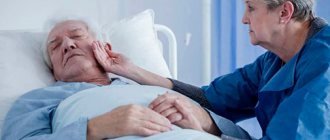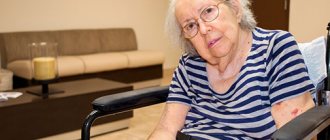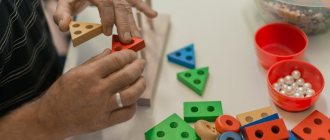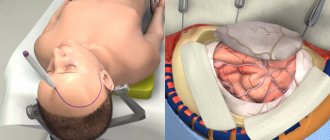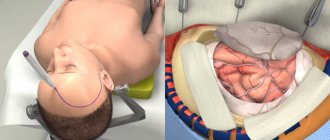Why does the sense of smell and taste change after Covid?
Doctors often encounter diseases in which the patient cannot distinguish odors. Here are some examples.
- Parkinson's disease. The patient is bothered by tremors of the limbs, gait disturbance, and muscle stiffness. It is with these symptoms that he consults a doctor. But 5 years before the onset of motor disorders, patients may notice that their sense of smell decreases.
- Tumors. The sense of smell disappears when the brain is damaged if the olfactory bulb, a special area where olfactory neurons are located, is affected.
- Cystic fibrosis. Hereditary disease. Anosmia appears in the first two years.
- The receptors cease to fully form the nerve impulse.
- ARVI, allergic rhinitis, polyps in the nasal cavity. Hyposmia is associated with swelling of the nasal mucosa. It is what blocks sensitive hairs.
SARS-CoV-2 works differently. A special protein binds to the receptors of olfactory neuroepithelial cells, helping the coronavirus penetrate inside. The pathogen then travels along nerve fibers to the brain to the olfactory bulb. As a result, the olfactory tract from the initial receptors to the analyzer may be affected.
Is it possible to restore the sense of smell and taste?
In parallel with the decrease in the sense of smell, there is a violation of taste perception. This is a logical process. The aroma of dishes detected by humans enhances the taste and makes it richer. When a person does not perceive the smell of food, he cannot fully appreciate its taste. When olfactory sensitivity is restored, taste perception returns. The ability to distinguish smells and taste can be restored. The earlier you start treatment, the easier it is to do this. It looks like a stroke situation. After a vascular accident in the brain, it is necessary to provide assistance to the person as quickly as possible and begin to restore motor activity as early as possible. It’s the same with coronavirus infection – the faster rehabilitation begins, the better the prognosis. Olfactory neurons have the ability to recover, being renewed approximately once every 40 days. In order for them to earn money faster, they need to be actively engaged.
B vitamins and magnesium
The best anti-asthenic B vitamins are B3 and B6 vitamins (nicotinic acid and pyridoxine). We do not take thiamine into account due to the fact that sulbutiamine is a much more pronounced anti-asthenic drug, which we discussed in the previous paragraph. Pyridoxine is involved in the synthesis of GABA, and also increases the trophism of neurons, protects proteins from glycation by glucose and has a membrane-stabilizing effect.
B vitamins
329 rub.
Nicotinic acid is involved in the synthesis of nicotinamide dinucleotide, which is responsible for oxidative phosphorylation reactions in mitochondria and the production of ATP, the main energy currency of cells.
Magnesium prevents excessive excitation of neurons, has a calming and mood-stabilizing effect, and also relieves anxiety. The best effect is achieved by magnesium in combination with vitamin B6.
Why don’t everyone who recover from coronavirus infection lose their sense of smell?
Anosmia usually develops on days 4–6 of illness.
By 10–14 days, most people have recovered and the ability to distinguish aromas returns. But for some, the defect remains. You need to understand that any disease cannot occur in the same way in different people. No two organisms are identical, and accordingly, diseases will progress differently. Other significant factors:
- Viral load is the number of microbes that have entered the body. The more, the more severe the disease.
- The virulence of a virus is the strength of its destructive (damaging) effect. Different types and subtypes of coronaviruses vary. Don't forget that viruses mutate and change.
- Immune memory. The more acute respiratory viral infections a person has suffered in his life, the more easily he suffers from coronavirus, the lower the risk of complications.
- Concomitant human diseases: diabetes mellitus, obesity, severe forms of hypertension, respiratory failure. And if these diseases are combined, coronavirus infection is even more severe.
Sedatives
Not a recommendation. Any medications are taken only as prescribed by a doctor
Calming pills for health.
· What are sedatives?
Sedatives
are medications that can slow down brain activity, reduce irritability and arousal processes. Such drugs are used to relieve anxiety and irritation, and eliminate sleep disorders.
· In what cases is the use of sedatives indicated?
Doctors prescribe sedatives for sleep disorders and increased anxiety. Sedatives are also used during surgical interventions and painful, unpleasant procedures (eg colonoscopy, gastroesophagoscopy), which can increase the patient's anxiety and worry. Taking these drugs during surgery is necessary before general anesthesia. By themselves, they do not have an analgesic effect, but make the procedures easier to endure.
Sleep disturbance and increased anxiety are the first symptoms of stress. Stress is the body's reaction to various unfavorable factors affecting it. Small stressful situations are necessary to keep the body in good shape. But if stress becomes constant, a person needs to spend a lot of strength and energy to resist it, he becomes susceptible to illness, sleep disturbances, excess weight gain, mood changes and uncontrollable behavior. In a state of chronic stress, a person experiences a constant increase in blood pressure, glucose imbalance and its digestibility, which leads to the development of diabetes. All this leads to a sharp increase in the risk of developing cerebral stroke and heart attack.
The most common symptoms of stress are:
- increased irritability, dissatisfaction with people around you, the situation; -depression, weakness, severe fatigue, reluctance to do something; - restless sleep, complete lack of sleep (insomnia); - inability to relax, feeling of constant tension, feeling of trembling in the hands and body; -low concentration of attention, inability to perceive complex or new information, memory impairment; -lack of appetite or vice versa - excessive desire to consume, bad habits - smoking, drinking alcohol, narcotic substances.
The use of sedatives in case of chronic stress, along with other methods (elimination of stress factors, physiological procedures, correction of the psycho-emotional state), helps return the body to a comfortable state, increase immunity and improve the patient’s quality of life.
In adults, indications for the use of sedatives are life situations that place a person in a state of acute stress or constant psycho-emotional stress associated with work processes. Even physically healthy people who experience increased physical activity (professional athletes) experience excessive tension in the nervous system, which leads to disruption of the training process. Therefore, doctors often prescribe sedatives that help the body relieve stress and reduce anxiety.
In children, the development of the nervous system occurs gradually. At an earlier age, she may have increased excitability and sensitivity to stress factors. If symptoms of stress in a child are a regular occurrence, this may be a manifestation of an age-related crisis. At 3, 7 and 14 years old, a child overcomes the stage of growing up, so instability in behavior is not a pathology. But children's doctors recommend taking sedatives during this period to alleviate stress and make this stage go more smoothly. Also, during high mental stress, for example during exams, tests and tutoring, taking sedatives helps the child cope with stress more easily. It is necessary to understand that a child’s bad behavior and emotional instability may not be a manifestation of bad character, but a cry for help from his nervous system. Sedatives will allow the child to relieve anxiety and establish contact with the outside world.
Pregnancy is always stressful for the female body. Rapid changes in hormonal levels, poor health during toxicosis, possible problems during pregnancy - all this contributes to the emergence of neuroses. Excessive psychological stress can provoke an increase in uterine tone, which can lead to such serious complications as fetal hypoxia and even miscarriage. A mother's restless state can lead to the birth of an equally restless child. But taking sedatives during pregnancy is always prescribed with great caution. Most drugs do not have a proven lack of adverse effects on the fetus, which narrows the number of drugs that are safe for the child to take.
Older people are more likely to experience anxiety and worry than middle-aged people. Deterioration in the functioning of organ systems, a decrease in memory reserve, and a slowdown in thinking processes negatively affect the mental state. Due to increased anxiety, insomnia and feelings of powerlessness may occur. A sedative will improve the quality of life of an elderly person and will help overcome feelings of timidity, groundless fear, and irritability. For older people, herbal preparations that have a mild calming effect are recommended. They act very gently and are not addictive.
· How do sedatives work?
Let's take a closer look at how sedatives work. Sedatives work by changing certain nerve connections in the brain and central nervous system (CNS). In this case, they relax your body by slowing down your brain activity.
Two main processes occur in the human nervous system: inhibition and excitation. In a normal state, there is a balance of these processes. When necessary, a person is cheerful and energetic, or vice versa - calm and restrained. He can control his emotions and mood. If the balance is disturbed in the direction of increased inhibition, the person loses interest in life and becomes depressed. If excitement begins to prevail over inhibition, feelings of aggression and irritability appear. With prolonged arousal, aggression is replaced by fatigue, tearfulness, and impotence.
Sedatives enhance inhibition during increased nervous excitement and reduce the excitability of nerve cells. The mechanism of action is associated with a general inhibitory effect on the central nervous system (brain).
Based on the speed of onset of effect, sedatives can be divided into two groups:
1) Means of situational action; 2) Means of cumulative action; 3) Combined action agents.
Drugs of the first group are suitable for rapid action; they begin to work with 1 application. But they are powerless in cases of chronic stress. Drugs of the second group gain their effect within several weeks, but even after stopping the use they continue to have a calming effect.
There are also drugs, the effect of which does not develop so quickly, but as they are taken, they accumulate in the body and stabilize the nervous system. Such funds are taken in courses several times a year, and the cumulative effect will extend to the breaks between doses.
· The benefits and harms of sedatives.
Based on the survey results, people taking sedatives noted the following positive aspects of taking them: - relieving nervous tension (nervousness, fear, anxiety); -help in dealing with stress; -improved sleep and emotional state; -elimination of depression and fatigue; -reduced dependence on weather.
But it is worth understanding that, like any drug that has a serious effect on the nervous system, sedatives also have side effects. With proper selection of the drug and its administration, the risk of side effects is minimized. If taken incorrectly, side effects can occur even with herbal sedatives.
The most common side effects include: - addiction to the drug; - the so-called withdrawal syndrome when stopping the drug incorrectly. Abrupt withdrawal can lead to headaches, dizziness, severe ailments and a general deterioration in quality of life.
· Types of sedatives?
All sedative drugs can be divided into groups according to their pharmacological properties and the composition of the main active ingredient. We will analyze the most common groups, as their strength increases: · Herbal · Synthetic · Homeopathic medicines · Medicines with a combined composition · Antidepressants · Neuroleptics · Sedative tranquilizers
Herbal preparations.
Preparations from plant materials (valerian roots, motherwort leaves and flowers, passionflower shoots) have been used as sedatives for a very long time. This group of drugs is characterized by a mild cumulative effect, the possibility of long-term use without addiction, and a low risk of side effects. The most effective plants in this group are valerian, motherwort, peppermint, hops, peony, passionflower, and lavender. They are a basic component of many patented single-component and complex sedatives.
Soothing collection No. 3
Novo-passit Persen
Synthetic preparations.
This group of drugs has a more pronounced effect on the nervous system and has contraindications and side effects in greater quantities than herbal remedies. In this regard, the list of over-the-counter drugs of the synthetic group is not so large. These include Afobazole, Glycine.
Afobazole
It reduces anxiety well and has a slight stimulating effect. After just a week of taking it, a person feels a decrease in irritability, tearfulness, and improved sleep quality. The maximum effect is observed by the end of the month and lasts for two weeks after the end of the dose. Release form: 10 mg tablets. They are recommended to be taken 3 times a day. Contraindicated in children under 18 years of age, pregnant and lactating women. Can be used in short courses.
Glycine
The most accessible, most common, most popular drug during the exam session. This is an amino acid that is synthesized in the human body and participates in metabolic processes.
During times of stress and increased mental stress, the amount of glycine produced is not enough for brain tissue. Then this drug comes to the rescue. Glycine is available in tablets, which are recommended to be placed under the tongue until completely dissolved. During periods of psycho-emotional stress and increased physical activity, you should take 3 tablets during the day, in a course of 2-4 weeks.
Homeopathic medicines
The group of homeopathic remedies compares favorably with synthetic ones due to their mild effect on the nervous system.
They do not cause pronounced mental depression and do not have undesirable effects on other organs. The most famous homeopathic medicines are Homeostress
and
Nervohel
.
These are multicomponent drugs produced in the form of tablets for sublingual resorption. That is, one tablet must be placed under the tongue and dissolved until completely dissolved. These drugs are approved for use starting from 3 years of age. No side effects were identified.
The use of only homeopathic remedies is possible for mild nervous system disorders. In moderate and severe conditions, complex treatment with the use of more potent drugs is necessary.
Combination medications
A combination drug is a product that contains herbal and synthetic components. Typically, the dosages of active ingredients are minimal, but thanks to their combination, the calming effect is significant. Combined sedatives are available without a prescription and are taken in short courses of up to 1 month.
Corvalol
A popular drug invented in the last century. It is still quite relevant today. It contains ethyl alcohol and phenobarbital (a fairly strong psychotropic substance), and peppermint oil is used as a herbal component. Together, these components enhance each other's effects. The product is suitable for quickly relieving stress. Contraindicated for children and pregnant women. After taking Corvalol, you should not drive a car.
St. John's wort + Glycine
A popular example of a combination of a plant component with a synthetic one. The effect accumulates gradually, but after 1 week of use, patients noted a decrease in anxiety, deeper sleep, and improved well-being after waking up. Available in tablet form. It is recommended to take 2-3 tablets 3 times a day with meals.
Antidepressants
Depression is a long-term (more than 2 weeks) decrease in mood. Added to this is complete powerlessness, a feeling of emptiness in the soul, slowing down of movements and thought processes. This is a severe psycho-emotional condition that requires the supervision of a psychiatrist and the prescription of potent medications. Antidepressants include the following qualities: they are not stimulant drugs and begin to work after some time from the start of use.
All antidepressants can be divided into two main groups:
- tricyclic antidepressants - selective serotonin reuptake inhibitors
The first group is the longest used and, accordingly, the most studied. But because tricyclic antidepressants have a large number of side effects, the risk of overdose and the presence of a large number of contraindications, doctors prescribe drugs from a different group. Selective reuptake inhibitors are modern drugs with easy tolerability. Therefore, in many countries, a drug from this group is prescribed for anxiety disorders, depression, various phobias and chronic pain. Side effects when taking it include weight gain, nausea, and sleep disturbances in the first days of taking it. Their intake should be monitored by a psychiatrist; in each case, the dose is selected individually, taking into account concomitant diseases and the severity of the patient’s emotional state.
Neuroleptics.
Neuroleptics are drugs that affect brain activity and normalize mental functions. They used to be called “major tranquilizers.” The main effect of this group of drugs is to normalize the excitation systems in brain cells and reduce this activity to normal levels. At the same time, a person’s attacks of aggression, irritability, and agitation decrease.
In addition, they have a calming and hypnotic effect, stabilize mood, and improve cognitive functions (the ability to think normally and remember). What is important is the selection of a drug that will be suitable for treating a particular patient. The main undesirable effects when taking antipsychotics include: increased appetite, weight gain, disruption of the endocrine system. The selection of these medications is carried out by a doctor; self-medication with substances of this group is unacceptable.
Sedative tranquilizers
This group has five main components of activity: anti-anxiety, sedative, hypnotic, relaxant, anticonvulsant. They are mainly used for anxiety conditions, as well as for short-term elimination of anxiety symptoms (short courses). When prescribing these drugs, the doctor increases the dose gradually, brings it to the optimal dose, and then gradually reduces it to avoid withdrawal syndrome (when the condition sharply worsens after stopping use). These medications should be taken for no more than 2-3 weeks, because tranquilizers can be addictive. Also, while taking sedatives, a person should not drive a car or work in a place where increased concentration is required.
· How to choose sedatives?
How can one find a remedy among such a variety that will help restore peace of mind? For mild stress, monocomponent herbal and homeopathic medicines, as well as mild synthetic medicines, will help. But sometimes they are not enough, and there is not enough opportunity or time to consult a psychiatrist to select potent medications. In this case, preparations of a combined composition (including synthetic and herbal components), or multicomponent herbal preparations, will be relevant.
· Over-the-counter sedatives
All herbal preparations are available without a doctor's prescription. The most common of them are Novopassit, Persen, tinctures of valerian, peppermint, and peony. Glycine, Tenoten, Afobazole are effective sedatives of the synthetic group, available without a prescription.
· Prescription sedatives.
Potent groups of drugs are always dispensed only with a prescription, since their use must be carried out under the supervision of a doctor. All antidepressants are sold strictly by prescription. You need to listen to the state of your body. Taking strong medications is necessary only in advanced cases, when the nervous system is so exhausted that it can no longer cope with stress with the help of mild sedatives. To prevent stress from becoming chronic, prevention is necessary.
Give your body a rest, allow yourself to relax in your free hours. Sometimes it’s useful to just do nothing, watch a movie or listen to pleasant music, or take a bath. Adjust your diet. Too many carbohydrates and fats disrupt metabolic processes, and excess sweets cause mood dependence on food, which will subsequently also negatively affect mood and energy replenishment. The absence of bad habits and addictions helps the nervous system maintain a balance between excitation and inhibition.
The quantity and quality of sleep is equally important for balance in mood. During sleep, information is processed and the body's strength is replenished, including in order to better withstand stress the next day without putting your body under excessive emotional stress.
Staying in good physical shape is a great way to combat stress. Choose a sport that is comfortable for you, for example, dancing perfectly improves mood and self-esteem, especially in women.
If a feeling of exhaustion, fatigue and low mood haunts a person for a long time and mild sedatives do not help, it is recommended to consult a specialist who will select the necessary drug with the least side effects. Be healthy not only physically, but also emotionally!
THERE ARE CONTRAINDICATIONS, YOU MUST READ THE INSTRUCTIONS OR CONSULT WITH A SPECIALIST.
What needs to be done to restore your sense of smell?
Irritate receptors and restore the chain of pathways. Force nerve cells to work, remember their functions. Coffee, lemon balm, mint, and garlic are good for this. Aromatherapy is used with essential oils: clove, citrus, eucalyptus. You need to inhale aromas 5-6 times a day. Irrigation of the nasal cavity with saline solutions will help with swelling of the mucous membrane. It is allowed to use special sprays, even hormonal ones. They should be prescribed by an otorhinolaryngologist, because there are contraindications. A neurologist can prescribe medications that improve the trophism of nervous tissue, including olfactory receptors, and also recommend reflexology.
General measures to improve the functioning of the nervous system after binge drinking
During the period of restoration of the full functioning of the nervous system, doctors focus on a balanced diet and regular physical activity . Knowing the relationship between brain functions and the work of liver cells, doctors talk about the need to completely avoid fatty and spicy foods.
The basis of the patient's diet should be low-fat broths, dairy products, vegetables, and fruits. Watermelon, melon, and cherry are excellent for removing excess fluid from the body. Every day it is advisable to drink alkaline mineral water without gas.
It is unacceptable to work hard after drinking. Physical activity should be moderate, since the body spends a lot of energy on restoring the nervous system. You need to sleep at least 8 hours a day. Before going to bed, leisurely walks in the fresh air are advisable. Suitable types of physical activity include yoga, gymnastics, and walking with Nordic poles.
It is impossible to restore the nervous system after heavy drinking in one day or week. This process is lengthy and requires effort on the part of both the patient and the doctor. For it to be successful, a person must stop drinking. To do this, he needs to encode.
There is no safe dose of alcohol. These are inventions of people who are unable to pull themselves together. Only a complete abstinence from any alcohol-containing drinks will ensure recovery for the addict and create conditions for the normal functioning of the nervous system.
Reflexology. What is this? How can you use it to restore your sense of smell?
Doctors classify reflexology as physiotherapy.
It improves blood supply, innervation, lymphatic drainage, and promotes well-being. With the help of reflexology, you can restore your sense of smell. This is not a new treatment method; it has been used before. Reflexology helps well in the treatment of allergic rhinitis and even infectious rhinitis. Acupuncture - placement of needles, can be combined with cauterization. Internal organs on the surface of the skin have their own projections, which are called miraculous meridians. The doctor acts on the biologically active points of a certain zone, as a result of which microcirculation and lymph flow improve, swelling is eliminated, and the sense of smell improves. By restoring the circulation of energy according to ancient Chinese teachings, we restore health. Information for you was prepared by: neurologist Lyudmila Vasilievna Lebedeva, reflexologist. Conducts receptions in the clinic building on Novoslobodskaya.
